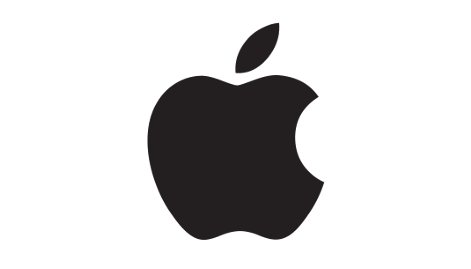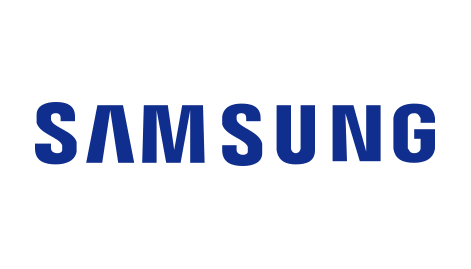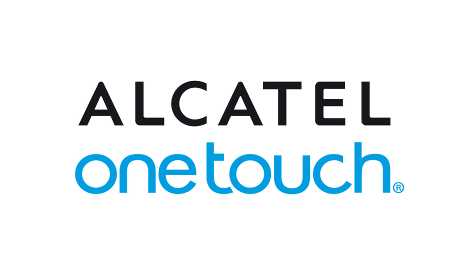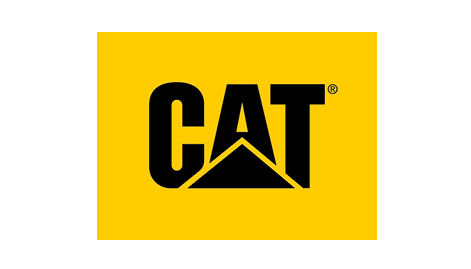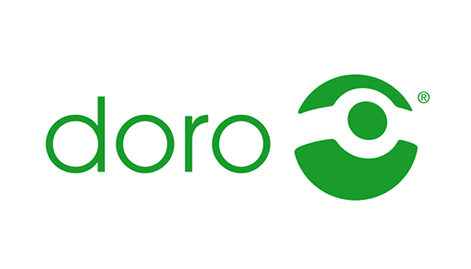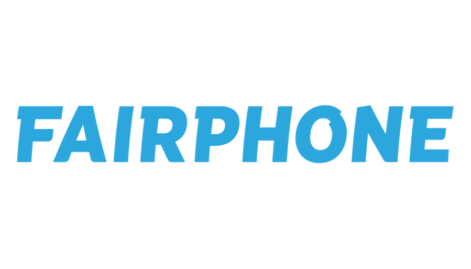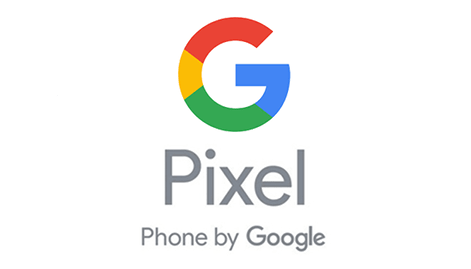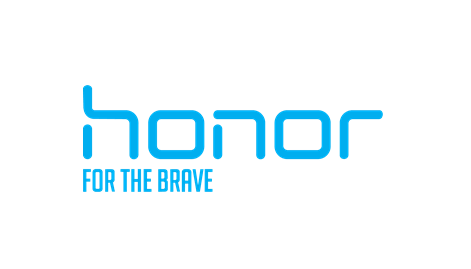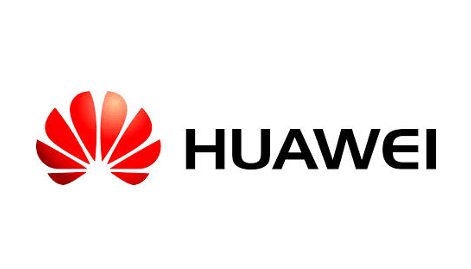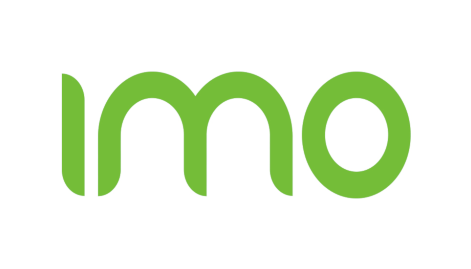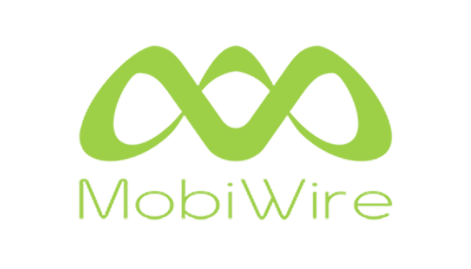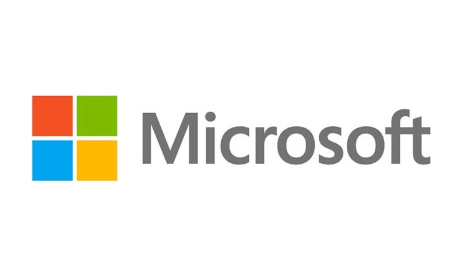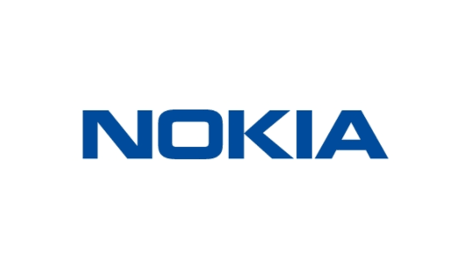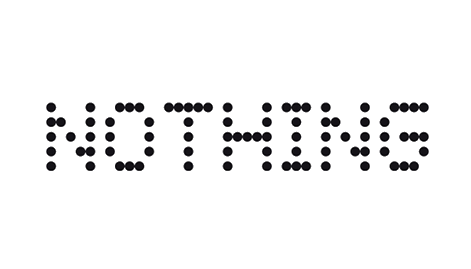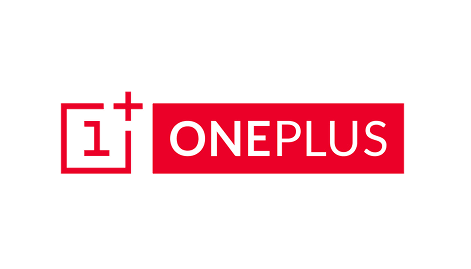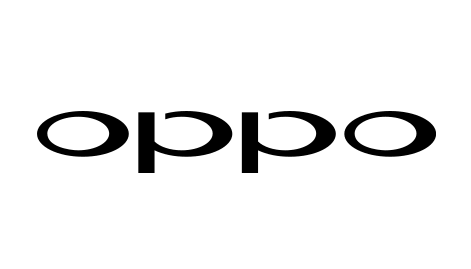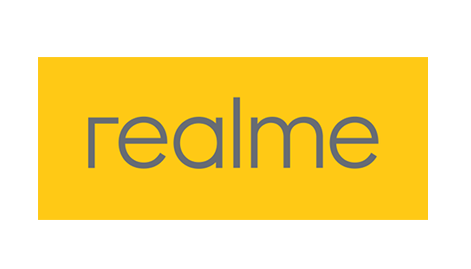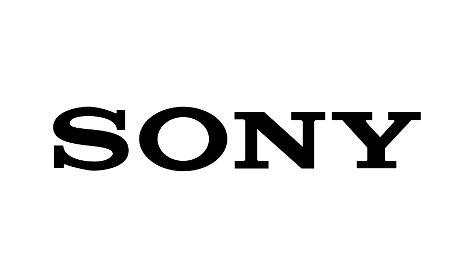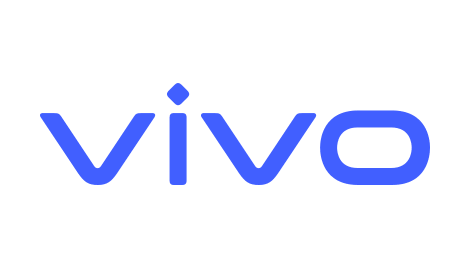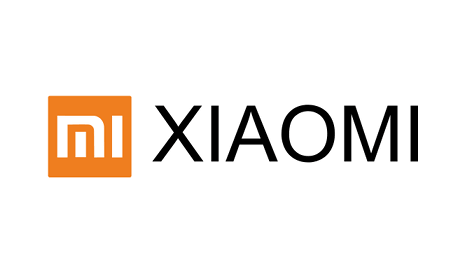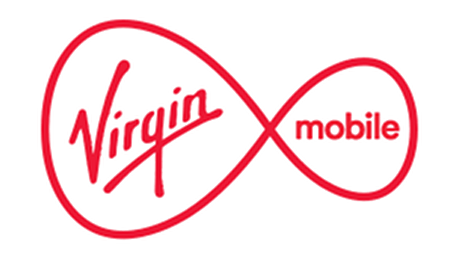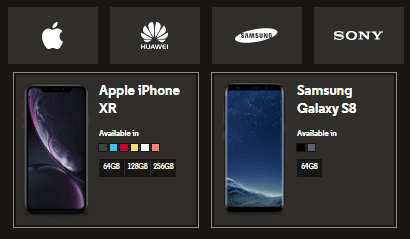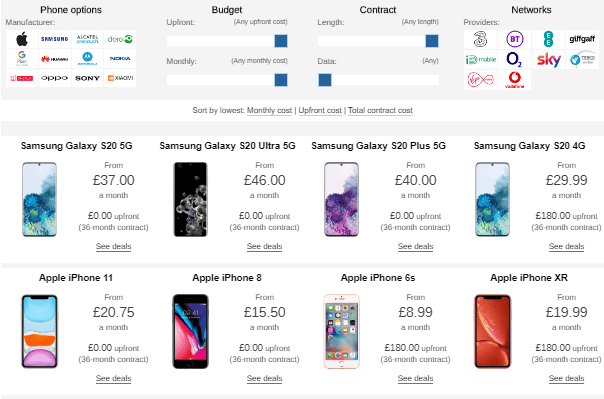VOXI vs Three: which is the better network to join?

The retailers featured on this page may compensate us when our readers follow links to their websites and make a purchase. More
We compare the 5G/4G coverage, speeds, network features and benefits you get on Three and VOXI to help you decide which to join. Last updated: 3rd July 2023
In our VOXI vs Three guide
Offer news
Is coverage better on VOXI or Three?
We compare both networks on their 3G/4G/5G coverage
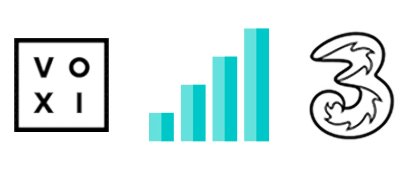
✔ VOXI have more widespread 4G/3G/2G than Three
Three own the network they use to provide signal, while VOXI are a sub-brand of Vodafone and use them for signal. Coverage is the same between VOXI and their hosts, so how do they stack up against Three?
Being on Vodafone is good news for VOXI’s call signal (3G/2G) as they are able to cover more of the UK’s physical landmass than Three and generally get better signal to the places where people actually live.
And VOXI also provide more widespread coverage for 4G data signal than Three, especially in rural areas. But in built-up urban areas there’s little difference to split them for 4G coverage (see 5G below).
We always recommend using their coverage checkers below to see which is best in your area. Don’t just check your home, but everywhere you’re expecting to use your phone.
Useful link: VOXI’s guide to their network
✔ 5G is live in way more locations on Three than on VOXI
5G is rapidly expanding on the four main UK networks (Three, Vodafone, O2 and EE) and this is especially the case on Three. They have the second-largest amount of UK towns and cities with 5G live.
Three provide 5G in 484+ locations around the UK, while VOXI only have 141+ UK towns and cities. You’re much more likely to get 5G near you on Three, but these numbers don’t tell the full story.
Just because a location is covered by 5G doesn’t mean you’ll get 5G everywhere in that location. It’s still on a street by street basis, but even here Three tends to be a bit more consistent.
Whatever the case, use VOXI and Three's network maps to see where they have 5G on a street-by-street basis and if they actually have it in your area.
Useful link: Three's plans for their 5G rollout
Checking signal on Three and VOXI
Here's how to find predicted reception in your area
Our verdict on coverage:
Minor win for VOXI"Three hold a huge advantage for 5G. However, it’s probably still more important to have strong 4G signal as you’ll use it more often than 5G. And having better call signal makes total blackspots less common. So VOXI take this one."
Are data speeds faster on VOXI or Three?
Here are the typical speeds you can expect from either network
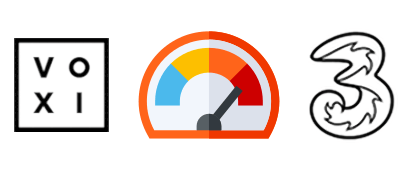
✔ Three offer typically faster 4G and 5G speeds
We use results from independent network testers Opensignal to see what typical 4G speeds look like on either network. They measured speeds around 30.7 Mbps on Three and around 21.2 Mbps on VOXI’s hosts, Vodafone.
From our own tests we found that VOXI’s speeds can vary more than other networks, with rural 4G dropping to 7 Mbps but urban 4G hitting peaks of 80+ Mbps. Three didn’t reach those peak speeds, but were less varied.
Opensignal and Speedtest by Ookla put typical 5G speeds between 228.4 Mbps - 285.2 Mbps on Three and between 105.2 Mbps - 146.01 Mbps, with peak speeds up to 687.13 Mbps on Three and 322.91 on VOXI.
While Three are by far the fastest network for 5G, speeds on VOXI are still healthy. Most users should be happy with either, but heavy data users (such as mobile gamers) will prefer Three.
Useful link: Three's 5G speed expectations
Our verdict on download speeds:
Easy win for Three"While VOXI can get you potentially faster peak 4G speeds in certain areas, 4G speeds will usually be more consistently high on Three. And Three blow VOXI out of the water when it comes to 5G speeds. Three take this one easily."
Extra network features
We compare VOXI and Three on their WiFi calling, 4G calling and WiFi hotspots
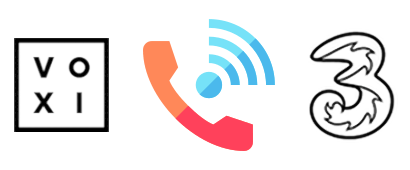
✔ Three offer one of the best WiFi calling schemes
Most mobile networks now offer WiFi calling as standard these days. This lets you make/take calls over WiFi signal rather than traditional call signal (2G/3G), helping you keep connected where signal is weak.
Three haven’t updated their old supported devices list for a while, but from tests we’re confident that newer phone models will work with their WiFi calling. They support lots of models, so it’s easy to get WiFi calling working.
And you get 4G calling (VoLTE) as standard on Three, which further improves coverage for calls. And you can transfer a call from WiFi to 4G without it dropping on Three, and send SMS texts over WiFi and 4G.
Three also offer a network of free WiFi hotspots on the Underground on all of their plans. This lets you stay connected and pairs well with their WiFi calling, but is only really useful for London residents.
Useful link: Three's guide to their mobile network
✔ VOXI’s WiFi calling works similarly to Three’s
Both WiFi calling and 4G calling come as standard on VOXI’s plans. They have a similar scheme to Three’s in terms of how it functions, but they support the same devices as Vodafone instead.
They’re missing a few older Android models, but most new phones and iPhone should work fine. VOXI also let you transfer calls from WiFi to 4G without them dropping and send texts over WiFi and 4G.
Another thing that separates the two is that you’ll no longer get free WiFi on the Underground with VOXI. So you’ve got no chance of staying connected while on the Underground, unlike on Three.
The only thing we’d say VOXI’s network features have over Three’s is that VOXI’s greater 4G coverage means their 4G calling is a little bit more useful. But overall VOXI just fall slightly short here.
Useful link: VOXI’s guide to their network features
Our verdict on extra network features:
Minor Three win"In terms of functionality, VOXI and Three’s WiFi calling schemes are largely the same. However, Three support a few more devices, making it easier to get working, and you can pair it with their Underground hotspots to stay connected. Three take this one."
Inclusive roaming: Three vs VOXI’s roaming schemes
Do you get inclusive EU or worldwide roaming on either network?
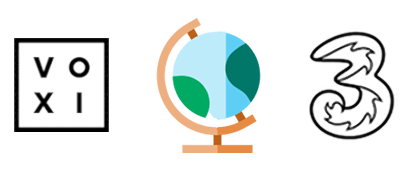
✔ Three include EU and worldwide roaming on premium plans
Three don’t include EU roaming on all their plans any more. But they recently introduced new Premium and Plus plans that are higher in cost than regular ones, but include roaming passes.
You get a different number of daily roaming passes each year on your contract depending on which plan you took. Plus plans include the most and you get more on a 24-month contract than a 12-month contract.
What’s great is that you can use these roaming passes in these 71 EU and worldwide destinations. If you’re on a Standard plan, however, it’s £2 a day to roam in the EU and £5 a day beyond the EU.
You’ll still be limited to 12GB of your data allowance, however. We find it a bit annoying that your data use is limited even though you’re paying to use it. But in any case their roaming has got a bit better.
Useful link: Roaming costs in non-inclusive destinations
✖ VOXI don’t include EU roaming any more
VOXI are one of the many networks to remove inclusive EU roaming from their plans. That means you now have to pay for every day you roam at these rates, or take a temporary roaming pass.
On top of that, VOXI’s Unlimited Social Media and Video benefits won’t work while you’re abroad. And you’ll be limited to 20GB of monthly data while abroad, which massive data users might come into problems with.
Beyond the EU you’ll either have to pay with credit (see charges per country here) or you can buy either an 8 day or 15 day roaming extra pass which gives you a bundle of minutes, texts and data for a one time cost.
VOXI aren’t uniquely poor for EU roaming, as more and more networks are getting rid of it. But we don’t appreciate the fact that users on VOXI will pay considerably more to roam, so we have to be critical of them.
Useful link: Full costs and charges when roaming on VOXI
Our verdict on roaming:
Three win"While you only get roaming passes on Three’s more expensive plans, at least they offer some inclusive roaming options. And these can be a genuinely good value for frequent worldwide travellers. Three are the better choice for roaming overall.”
Other benefits compared
What else do VOXI and Three offer on their plans?
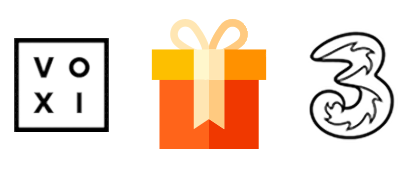
✔ VOXI include Unlimited Social Media data on all plans
VOXI include their Unlimited Social Media benefit on all plans (on phone and SIM only deals). This means you can use these social media apps without worrying about going over your allowance, even on their smallest cheapest plan:
This is great for apps like Twitter that are image and video heavy as these will usually eat through a lot of data. But you can also save a nice bit of data you’d otherwise use up on sending messages as well.
It even works if you use your browser instead of the app and if you’re tethering to another device. But you need to have some of your allowance left for it to work and the benefit doesn’t work while you’re abroad.
Still, it’s a great benefit overall gives VOXI an edge over Three who have nothing like it. It’s our favourite unlimited social media data scheme for how many apps are covered and the fact it comes on all plans.
Useful link: VOXI's full guide to Endless social data
✔ VOXI offer Unlimited Video on higher end plans
VOXI also include their Unlimited Video benefit on all but their cheapest plan, which allows you to stream YouTube, Netflix and these other entertainment apps on the go without using up your data.
This could save potentially hundreds or thousands of MB if you’re a heavy streamer. It’s especially great for tethering to screens with larger devices as that’s also covered by the benefit.
These plans all include the benefit:
We left a video running on the YouTube app on data to see if it was truly unlimited. After 10 hours we found that even though the app said we used 15GB of data, none of it came out of our allowance.
This is another incredible benefit of joining VOXI. It’s one of our favourite free streaming data schemes and is one of the biggest reasons we’d consider joining VOXI in the first place.
Useful link: More about VOXI's Unlimited Video
✔ Three give all users access to their rewards app
Three don’t offer anything like VOXI’s free social media or video streaming data benefits. However, they do now offer access to their rewards app Three+ which can give you a bit of extra value out of your plan.
This gives you special offers on high street shopping and restaurants and you can even get presale tickets to Three-sponsored events (such as the Reading and Leeds festivals).
And their previously mentioned Premium and Plus plans include some extra benefits as well as their roaming passes. These include an extended warranty on phone deals and subscriptions to Paramount+.
Again, you don’t get anything huge for joining Three. But these benefits do get you a nice bit of extra value on what are already pretty good value plans.
Useful link: Three's cheaper sub-brand SMARTY
Our verdict on other benefits:
Draw"With the two networks focusing their added benefits on different areas, your decision here will come down to what you’re into."
VOXI vs Three's deals
SIM only deals
Check whether VOXI or Three are better value per GB
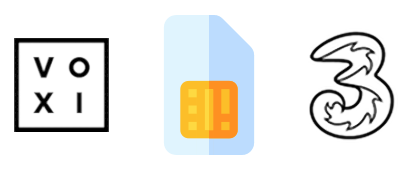
Plan
Data: (0MB+)
Minutes: (0+)
Special offers
The best current deals offered by both networks
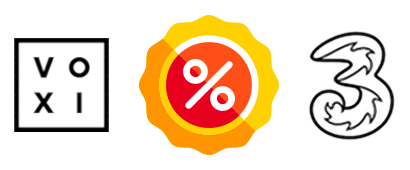
Phone contracts on Three vs VOXI
Which network offers the better phone contracts?
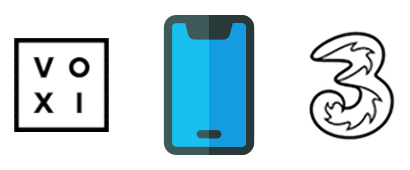
Budget
Upfront: (Any upfront cost)
Monthly: (Any monthly cost)

Loading phone deals...

✔ VOXI offer very flexible phone contracts
All of VOXI’s phone deals are sold as “split contracts” that separate the cost of your device and usage plan (mins, texts, data) into separate payments that come together to make up your monthly bill.
The benefit is that you can change your usage plan after the first 30 days to suit your current needs, without having to pay off your phone. Their phone contracts are 30 months but you can pay to shorten the length of this.
That means you can set up your contract to suit your budget and you can save money in the long term by switching down to a smaller usage plan whenever you need.
The issue is that you’ll have to pass a credit check, and these can be quite harsh as the network has to be sure that you can pay them back for the phone. If you’ve missed a bill in the past you might be denied.
Useful link: VOXI's FAQs about their phone contracts
✔ Three now offer more flexible contracts than before
Three used to only sell their phones on 24-month contracts, but now they offer split finance agreements (loans) where the cost of paying back your phone and your usage plan are separate.
You can choose a contract length of 12 months, 24 months or 36 months over which you pay off your phone. And you can make lump sum payments to reduce your bill, or pay off your phone entirely to upgrade early.
However, you don’t get the flexibility of changing or leaving your usage plan when you like you do on VOXI. So you could end up paying more than you need if your usage plan is bigger than what you actually use.
In any case, use our phone comparison tool to see which network offers the best deal for the phone you want. You can even find better hidden deals not advertised directly on their websites.
Useful link: Compare phone contracts
Our verdict on phone contracts
Draw"Ultimately, both networks offer great flexibility with their contracts and which one you prefer will depend on which offers the better deal for the phone you want."
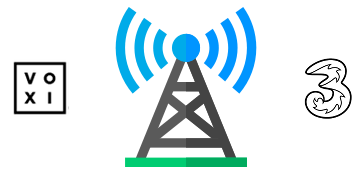


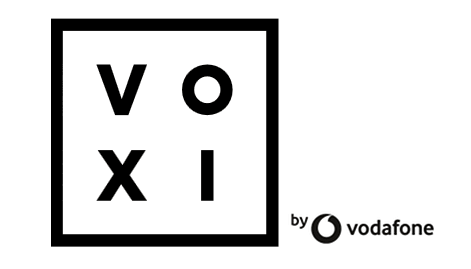
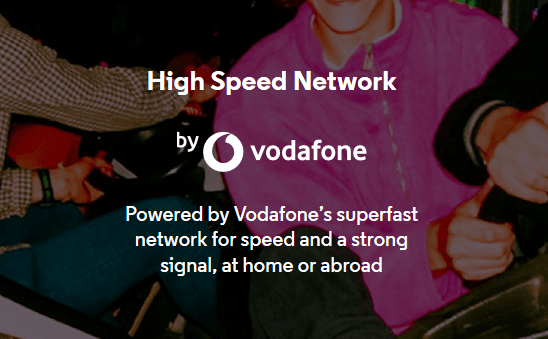

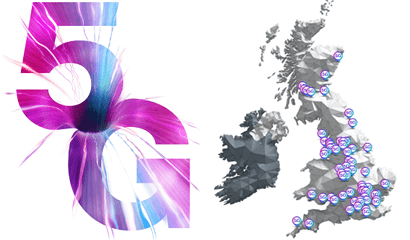
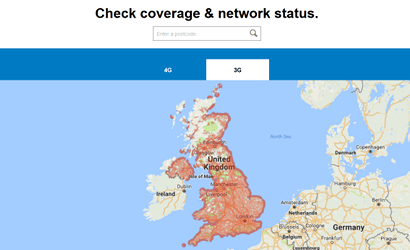
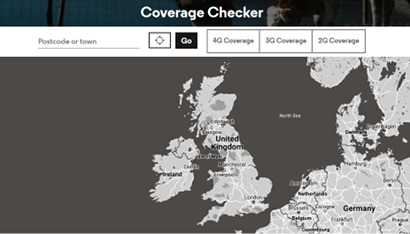
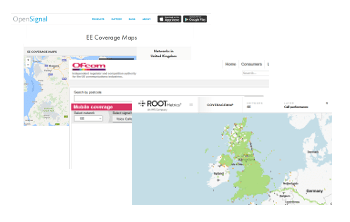


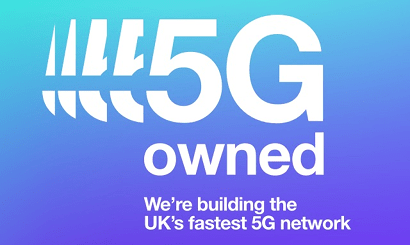
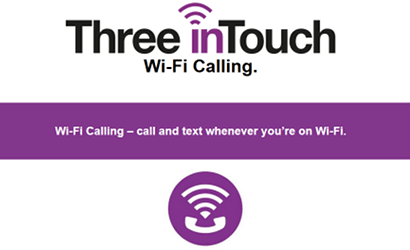
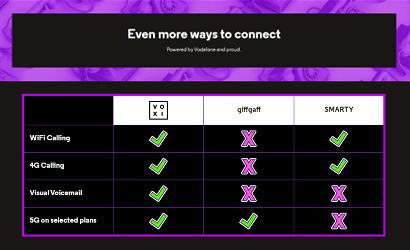




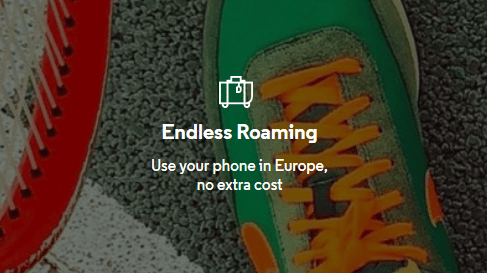
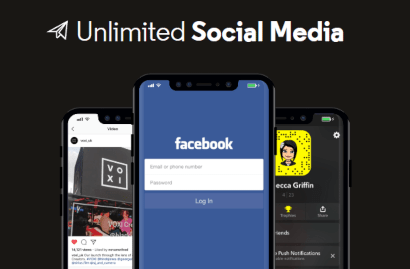
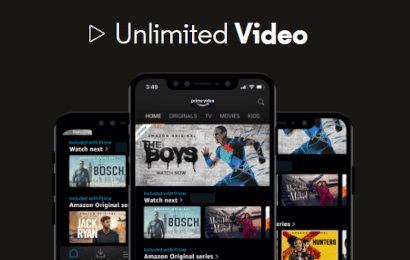
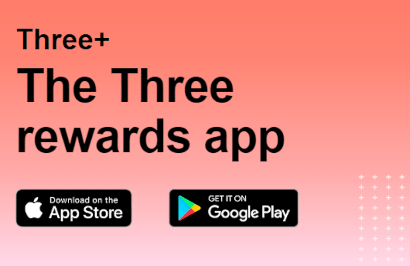
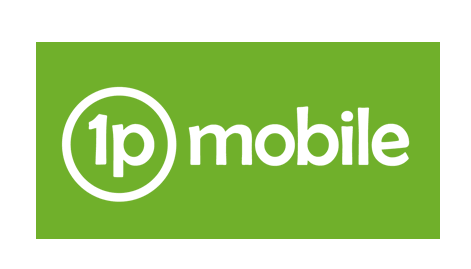
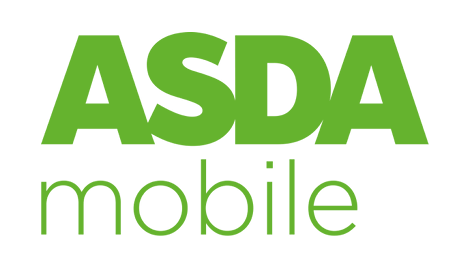
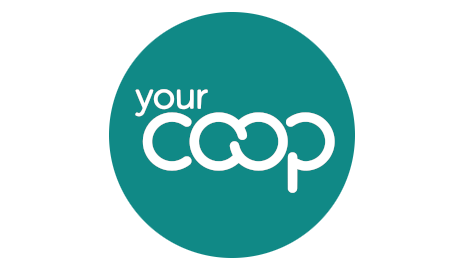
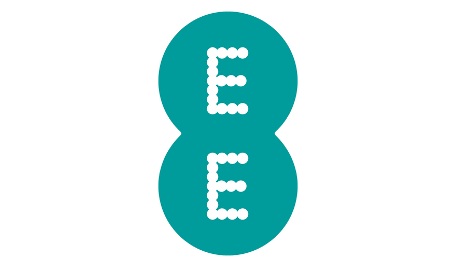
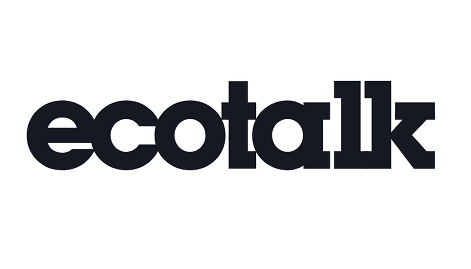

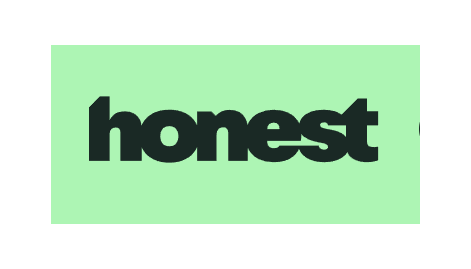
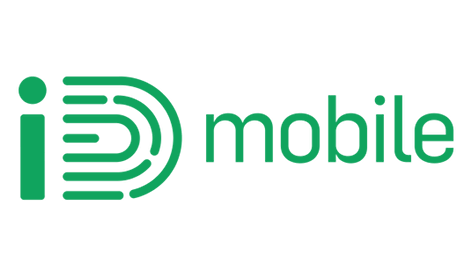
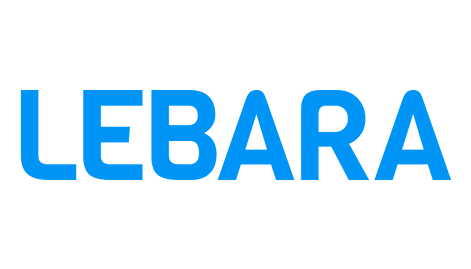



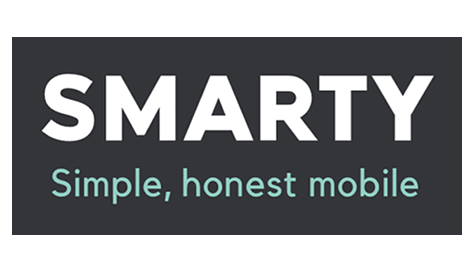
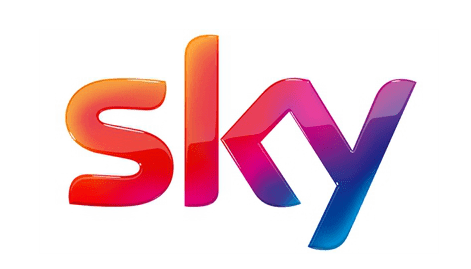

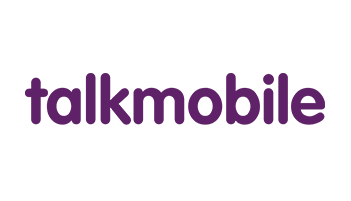
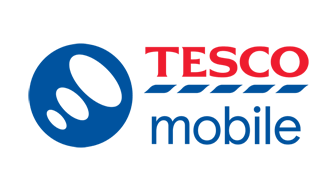
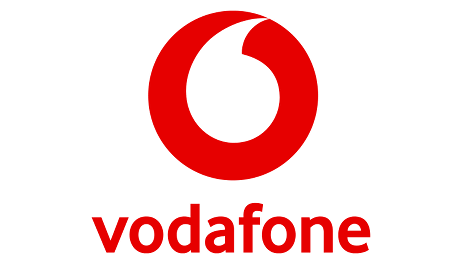


 Thanks, we'll send that out now. Please check your inbox for our email.
Thanks, we'll send that out now. Please check your inbox for our email.